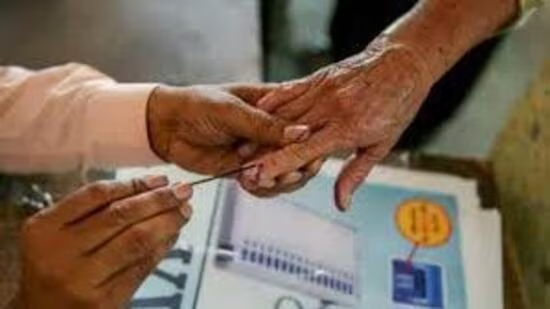In the Indian political landscape, the role of a proposer in election nominations is crucial. Recently, a situation in Jharkhand brought this role into the spotlight, just weeks before the state’s assembly elections scheduled for November 13 and November 20.
Controversy Involving Hemant Soren’s Proposer
Hemant Soren, the Chief Minister of Jharkhand and leader of the Jharkhand Mukti Morcha (JMM), is contesting from the Barhait Assembly constituency. On October 27, his proposer, Mandal Murmu, was detained by the police while on his way to meet leaders of the Bharatiya Janata Party (BJP).
- Murmu’s Claim: He stated that he was meeting BJP MP Nishikant Dubey to discuss issues like alleged infiltration by Bangladeshis.
- JMM’s Concern: The party’s spokesperson, Supriyo Bhattacharya, alleged that Murmu was being taken away by unknown persons, sparking fears that he might switch allegiance to the BJP. This raised concerns about the validity of Soren’s nomination.
On Tuesday, the Chief Election Commissioner (CEC) Rajiv Kumar questioned the Jharkhand Chief Secretary and the Director-General of Police (DGP) about Murmu’s detention. The CEC highlighted that the police did not follow the Model Code of Conduct, such as recording the incident or following proper procedures.
What Is a Proposer’s Role in Elections?
A proposer is an elector registered in the same Lok Sabha or Assembly constituency where the candidate is contesting. Their main role is to sign the nomination papers of the candidate.
- For Recognized Parties: Candidates from recognized national or state parties need one proposer.
- For Independent or Unrecognized Parties: These candidates require ten proposers.
- This requirement is outlined in the Representation of the People Act, 1951.
Key Points:
- The proposer doesn’t need to be a member of the candidate’s party.
- Either the candidate or the proposer must be present when submitting the nomination to the Returning Officer (RO).
- The RO verifies the names and electoral roll numbers of both the candidate and the proposer.
- A candidate can file up to four nomination papers for the same constituency, but only one will be accepted.
- The same proposer can sign more than one nomination paper for the candidate.
Example:
- In Hemant Soren’s case, his proposer, Mandal Murmu, is a descendant of Sidho Murmu and Kanhu Murmu, leaders of the 1855 Santhal rebellion.
- During the Lok Sabha elections, Prime Minister Narendra Modi chose prominent community members as his proposers, including Ganeshwar Shastri Dravid, a Vedic scholar.
Can a Nomination Be Rejected Because of the Proposer?
Yes, but only under certain conditions:
- If the nomination papers are not submitted before the deadline.
- If the papers are delivered by someone other than the candidate or the proposer.
- If the signatures of the candidate or proposer are found to be fake.
Important Note: If a proposer meets with rival parties or joins another party after signing, it does not affect the candidate’s nomination.
In Hemant Soren’s case, despite the controversy, his nomination was accepted during the scrutiny of nominations on Wednesday.
Are There Any Precedents?
Yes. During the Lok Sabha elections, a notable incident occurred:
- Nilesh Kumbhani, a Congress candidate from Surat, had his nomination rejected.
- Three of his proposers told the RO they had not signed his nomination papers.
- As a result, the BJP candidate, Mukesh Dalal, was elected unopposed.
- The Congress alleged that the BJP pressured the proposers to withdraw support.
Why Is This Important?
Understanding the role of a proposer is vital because:
- It ensures the authenticity and validity of a candidate’s nomination.
- Issues with proposers can lead to the rejection of nominations, affecting electoral outcomes.
- Political parties often choose prominent or respected individuals as proposers to strengthen their position.
Conclusion
The role of a proposer in election nominations is a fundamental part of the electoral process in India. While they primarily endorse a candidate’s nomination, any discrepancies or procedural errors involving proposers can have significant consequences. It’s essential for candidates and parties to ensure all nomination protocols are correctly followed to avoid disputes or disqualifications.





